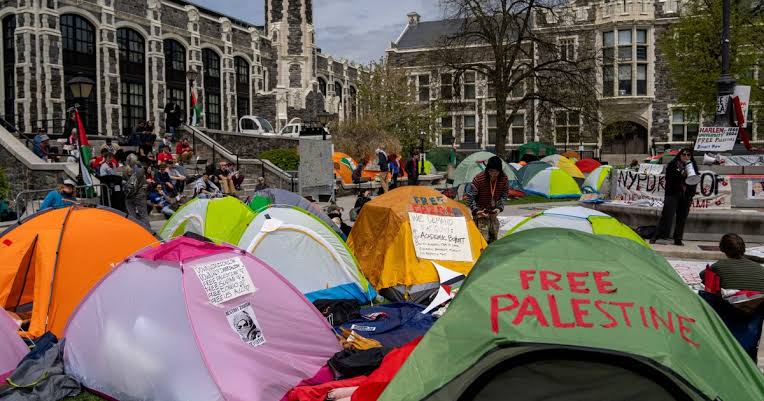
The Role Universities in Addressing Global Conflicts and Promoting Humanitarian Values
Throughout history, universities have held a significant role in articulating the collective conscience of nations and propelling them forward. They have actively challenged injustice and regressive ideologies, heightened societal awareness, guided political, administrative, and economic endeavors, and served as catalysts for change. Moreover, universities have been instrumental in driving scientific advancements and shaping national visions that reflect modernity and societal values.
The leadership within universities, primarily comprised of mature academics and educators, alongside the dynamic and engaged student body, fosters an environment conducive to the open expression of ideas, beliefs, and aspirations. This culture transcends rigid ideologies, political extremism, and regional biases, cultivating a deep commitment to humanitarian and just causes that resonate with broader societal and national concerns.
Here, the fundamental pillars of life—public freedoms, rights, justice, and equality—emerge as paramount issues that demand unwavering attention and defense. Throughout history, numerous examples abound of young people effecting change by challenging colonialism, resisting oppression, advocating for national interests, championing just causes, and pressuring society to address negative phenomena.
Throughout history, numerous examples abound of young people effecting change by challenging colonialism, resisting oppression, advocating for national interests, championing just causes, and pressuring society to address negative phenomena.
University professors possess heightened awareness owing to their extensive knowledge and experiences. They engage with issues honestly and steadfastly, driven by a moral responsibility above all else. This commitment is further reflected in the curriculum they impart, which prioritizes the values of equality and social justice and refrains from infringing upon the rights of others under any circumstance.
Currently, the Palestinian issue is marked by the distressing events in Gaza poses significant challenges. Individuals, organizations, and educational institutions are vocal in expressing their dissatisfaction with Israel’s actions and the perceived support from the American Government.
However, it’s natural to question why Arab universities and institutions have been largely silent regarding the events in Palestine, especially considering the six months since the war began.
Arab universities, scientific elites, professional unions, and human rights organizations have notably been absent. This absence highlights the disparity among Arab entities and regimes, exacerbated by the divisions arising from the Arab Spring. Even Palestinian factions remain divided. Meanwhile, some groups exploit this situation for their own agendas, forming questionable alliances. In contrast, the widespread activism seen in American universities recalls the student protests during the Vietnam War.
Today, prestigious institutions like Harvard, Massachusetts, Columbia, and California are joining forces to pressure the American government into urging the Israeli leadership to halt the ongoing conflict. Surprisingly, even Jewish groups and individuals are taking part in these demonstrations and sit-ins.
Meanwhile, in the Western world, there’s a concerning trend of suppressing freedoms and curtailing student activities. This behavior is reminiscent of actions seen in Third World countries, starkly contrasting with the values of human rights and freedom advocated by America and Europe.
These violent crackdowns on student protests in universities values the West stands for. The silence of Arab universities, though seemingly inconsequential, sheds light on the state of ineffectiveness and disarray in Arab policies and positions, prompting serious questions about its underlying causes.
The ongoing Israeli-Hamas war have led to significant casualties and damage. This situation has raised concerns about compliance with international laws. The situation calls for urgent efforts to address the ongoing conflict and prevent further harm to innocent civilians.
The protests and sit-ins at American universities showcased the depth of concern. This echoes a rare historical moment akin to the Vietnam War era and the student protests of the late 1960s, which led to significant political upheaval.
However, it’s disheartening to witness the inaction of our political leaders and the inertia among academics and youth in Arab universities.
______________________________
Dr. Taha Hussein Al-Hamdani is a Guest Contributor to the Sixteenth Council Insights



